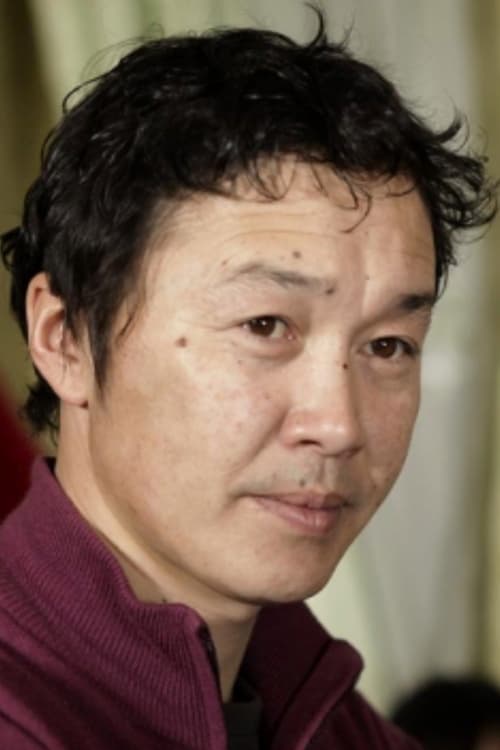In the Dawn (2017)
Uur tsaigaasai
Gênero : Drama
Runtime : 1H 59M
Director : Sengedorj Janchivdorj
Sinopse
A recently widowed affluent woman, Undral, faces an inevitable challenge when she must bring her late husband's former wife to the city from the countryside.
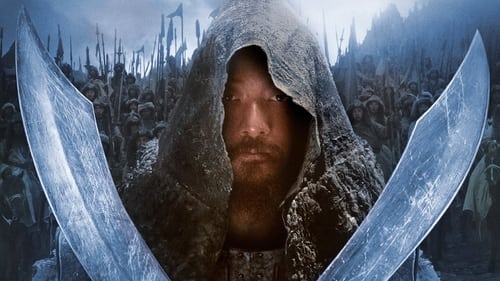
Reconstituição dos primeiros anos de vida de Genghis Khan, que ainda muito cedo foi escravo antes de se tornar um dos maiores conquistadores de todos os tempos. Ele chegou a dominar metade do mundo conhecido até então, incluindo a Rússia no ano de 1206.
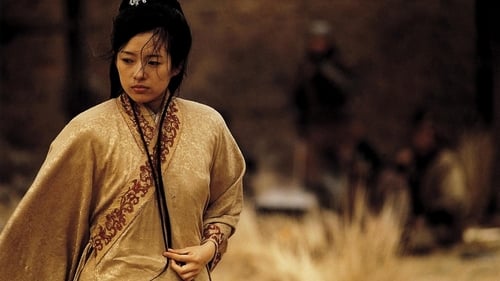
1375, China estava num caos entre a dinastia Yuan e a dinastia Ming. Coreia envia um grupo de diplomatas e soldados para falar sobre a paz com o novo governo da China. Porém, são tomados como espiões e os exiliam para um deserto remoto. Em direção a sua terra natal, descobrem que a princesa Ming foi sequestrada e decidem resgatá-la.
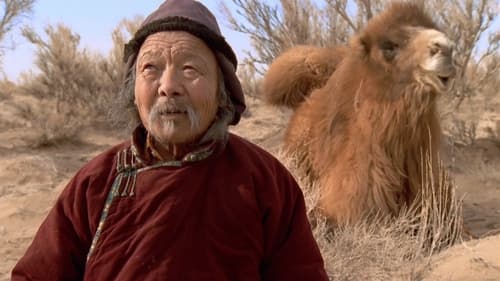
Uma família de pastores nômades ajuda uma camela durante um parto difícil, que resulta num raro filhote branco. Mas a mãe rejeita o filhote, e a família manda dois garotos buscarem um músico, esperando que ele consiga fazer a camela mudar de ideia.
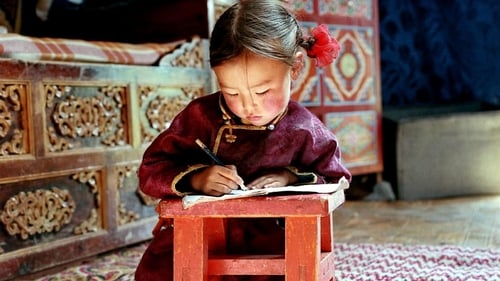
The little nomad girl, Nansal, finds a baby dog in the Mongolian veld, who becomes her best friend - against all rejections of her parents. A story about a Mongolian family of nomads - their traditional way of life and the rising call of the City.
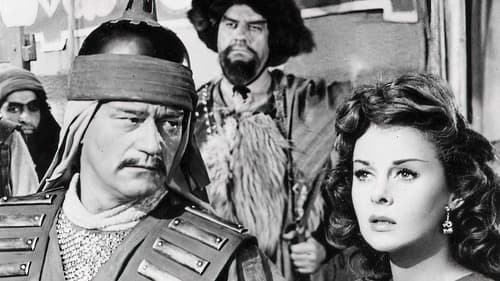
Do bilionário produtor Howard Hugues, Sangue de bárbaros tem um elenco com grandes estrelas, John Wayne e Suzan Hayard marcaram com grandes atuações esta mega produção épica sobre Genghis Khan. Seqüestrada por Temujin, a princesa tártara Bortai, o engana, fazendo-o desconfiar do seu irmão de sangue, Jamuga interpretado por Pedro Armendariz. Mas, após tantas desventuras, a princesa acaba se apaixonando pelo chefe mongol. Agnes Moorehead interpreta a mãe de Temujin e Thomas Gomes como Hunlun. Sangue de bárbaros foi filmado numa locação perto de Utah, perto de um local de testes atônicos, e teve um resultado trágico. Muitos atores do filme e pessoal da produção contraíram câncer e o primeiro a ficar doente foi o diretor Dick Powel. Apesar da tragédia no elenco, este é um filme marcante na história dos grandes épicos. Ação do começo ao fim.

É a palavra "horda" que significou, para muitos países e nações, ataques sangrentos e estar sob uma humilhante contribuição durante séculos - um mundo estranho e assustador com as suas próprias regras e costumes. Ser ou não ser para os Rus (Rutenos), esse era o preço da missão de um homem só, quando ele estava de partida para o mundo para realizar um feito. O filme conta a história de como São Alexius, o Metropolita de Moscovo e a Maravilha de Toda a Rússia, curou a Rainha Tártara Taidula, mãe de Jani-Beg, da cegueira, em 1357.
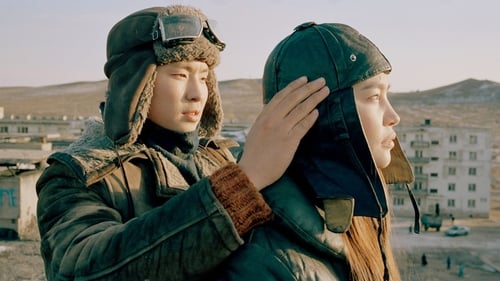
Set in the frozen steppes of Mongolia, a young nomad is confronted with his destiny after animals fall victim to a plague which threatens to eradicate nomadism.

Kenneth Seeley, member of the U. S. State Department's Foreign Service Bureau, and Marge Weldon, a morale worker with the bureau, are assigned to an area in Mongolia dominated by an outlaw warlord. The latter captures the village where they reside and when escape is clearly impossible, Seeley blows up the outlaw's headquarters, losing his own life in doing so.

A promise, an old, destroyed horse head violin and a song believed lost lead the singer Urna back to Outer Mongolia. Her grandmother was forced to destroy her once loved violin in the tumult of the Chinese Cultural Revolution. The ancient song of the Mongols, "The Two Horses of Genghis Khan", was engraved on the violin's neck. Only the violin's neck and head survived the cultural storm. Now it is time to fulfill the promise that Urna made to her grandmother. Arrived in Ulan Bator, Urna brings the still intact parts of the violin - head and neck - to Hicheengui, a renowned maker of horse head violins, who will build a new body for the old instrument in the coming weeks. Then, Urna leaves for the interior to look there for the song's missing verses. But she will be disappointed. None of the people whom she meets on the way appears to still know the old melody of the Mongols.


The Darkhad and Soyon Uriyanghai peoples live in a vast valley in Northern Mongolia, much as their ancestors have for centuries. "Taiga" is the record of a long period spent by the German filmmaker Ulrike Ottinger among these people.

When his white stallion disappeared, Shukhert embarked upon a race against time to track down the bandits, find his horse, and bring it home before winter. In this documentary, like a Western set in the East, life seems stranger than fiction – despite this being an absolutely authentic tale. Horse thefts are commonplace in this region, each triggering epic hunts across the spectacular steppes of northern Mongolia. From Buddhism to Shamanism, from horses to reindeer, and from hunters to those looking for gold, his journey is punctuated by a range of encounters that help explain the diversity of this complex region with its ethnic and socio-economic tensions. Thanks to his knowledge of the Mongolian territory, culture, and language, and his extensive experience of the region over the past 10 years, Hamid Sardar takes us on a journey into a world accessible only to a rare few, where safety and justice are pushed to their limits.

During the 12th Century a boy is born to a tribal chief. He is named Temujin, which means "blacksmith." Nine years later, his father is murdered by the Tartars After a long struggle, just when Temujin reclaims tribal chief status, the Merkit tribe kidnaps his wife. In order to fight against the Merkits, Temujin has to use his mother as a pawn in exchange for troops from ally tribes. Temujin manages to rescue his wife only to realise that she is pregnant with the enemy's child. Enduring tremendous anguish, Temujin throws himself into battle against the Tartars and slaughters the leader of the intruders. He eventually takes his wife back and accepts her child. Later on, he begins a campaign to unify all Mongolian tribes. By the age of 40, he is bestowed the title "Genghis Khan", which means "oceanic ruler".

A mongolian interpretation of Kafka's "The Castle".

At the turn of the 19th and 20th century Finnish philologist G. J. Ramstedt travelled around Mongolia and Central-Asia. In this documentary Ramstedt’s memoirs are heard in the modern day setting, where tradition is replaced with hunger for money, and deserts give way to cities.

During an operation with a master criminal, an undercover cop fails his mission because he was shot by an uniform officer. His superior suspects he has become a bad seed and refuses to allow him to rejoin the force. In order to prove his innocence, the cop decides to follow the thief to the Sino-Russian border on an arms struggle deal, but on the way they are chased by Mainland police. During the escape the cop and the criminal become friends. When they return to the Hong Kong border, the police awaits on the other side and...

The joys of the youth gather together for the New Year's Eve will lead to unimaginable circulation, interesting events and terrible events.

'Golden Eagle' is crowned wrestling champion at the Aobao Meeting, but subsequent conflicts break out between Glden Eagle and the Lord of Ba-yin. Expelled from the tribe, he meets and falls in love with San-Tan. But their affair arouses the jealousy of her suitor Chaganhu.

Ulaanbaatar, 1930s. Neighbors Norjmaa and Tserendulam are both pregnant. Having had two consecutive miscarriages, Norjmaa asks a lama to oversee her third pregnancy, while Tserendulam trusts modern medicine. She very often goes to hospital for proper follow-up.

Α Bengalese architect builds library boats that can bring books to people even during the monsoon season. Α Mongolian author packs two boxes full of books each summer to provide reading material to children in remote areas. Α Kenyan librarian leads caravans of camels loaded with boxes of books to the nomadic tribes bordering Somalia. Despite the heat, wind, rain or snow, they still manage their long journeys. This film about the fascinating world of mobile libraries tells of unusual means of transportation and adventurous travel, of different cultures and lifestyles, of the worries, aspirations and dreams of people in these areas – of books that change lives – and of book lovers, who take on unbelievable challenges in order to provide people in the remotest areas of the world with reading material. A film about the love of literature and the respect for knowledge that accepts no boundaries.



